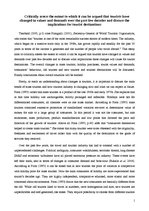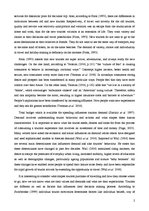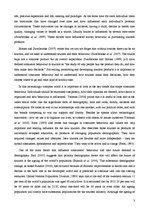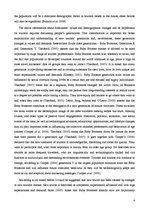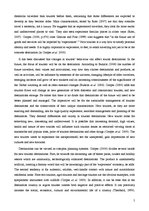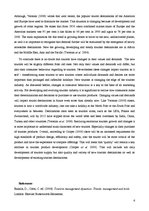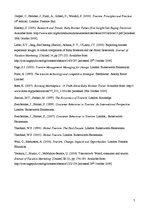-
Critically Assess the Extent to Which it Can be Argued That Tourists Have Changed in Values and Demands Over the Past Few Decades and Discuss the Implications for Tourist Destinations
Poon (1993) asserts that new tourists are super active, adventurous, and always ready for new challenges. On the one hand, according to Yeoman (2006, p.181) “the ‘culture of fear’ is causing consumers to behave in increasingly irrational ways.” Contempt higher income, better health and secure, new consumers worry more than ever (Yeoman et al. 2006). In nowadays consumers strong desire and prospect has been transformed in many particular ways. People feel that they have more control over their future. On the other hand, Yeoman (2006, p.182) adds that “we live in a society of ‘blame’, which encourages ‘ambulance chasers’ and an ‘American’ suing culture. Therefore, safety and risk antipathy become the norm, resulting in higher insurance costs and barriers to adventure.” People’s aspirations have been transferred by increasing affluence. Now people want new experiences and they ask for greater satisfaction (Yeoman et al. 2006).
Total budget which is available for spending influences tourism demand (Sinclair et al. 1997). Demand involves understanding tourist behaviour and actions and what shapes these human characteristics. It is important to know what the tourist needs, desires and looks for from the process of consuming a tourism experience that involves an investment of time and money (Page, 2003). Many writers have noted the economic and social influences on demand whilst others have designed and used sophisticated models to forecast demand (Wall et al. 2006). Reported to Wall (2006) there are several main determinants that influences demand and also tourists’ behaviour. He states that these determinants have changed in past few decades. Wall (2006) mentioned rising incomes, the desire to escape the pressures of everyday urban living, increased mobility, higher levels of education as well as demographic changes, particularly ageing populations and mature ‘baby boomers’. …
Theobald (2005, p.2) cites Frangialli (2001), Secretary-General of World Tourism Organization, who states that “tourism is one of the most remarkable success stories of modern times. The industry, which began on a massive scale only in the 1960s, has grown rapidly and steadily for the past 30 years in terms of the income it generates and the number of people who travel abroad.” This essay aims to critically assess the extent to which it can be argued that tourists have changed in values and demands over past few decades and to discuss what implications these changes will cause for tourist destinations. The overall changes in mass tourism, holiday purchases, tourist values and demands, consumers’ behaviour, old tourists and new tourists and tourism destinations will be discussed. Finally conclusions about overall situation will be marked. Firstly, to reach an understanding about changes in tourism, it is important to discuss the main trends of mass tourism and how tourism industry is changing now and what we can expect in future. Poon (1993) writes that mass tourism is a product of the late 1960s and early 1970s. She explains that in that time holiday was unchangeable, strictly packaged and inflexible. Holidays were not for differentiated consumers, all clientele were as one mass market. According to Poon (1993) mass tourism contained extensive promotion of standardised vocation services at determinate value of money for sale to a large group of costumers. In this period it was not the consumer, but sale economies, mass production, product standardisation and low prices that dictated the pace and direction of the growth of tourism. Above all Poon (1993, p.60) adds that “consumers themselves helped to create mass tourism.” She states that many tourists were more obsessed with the originality, freshness and excitement of travel rather than with the quality of the destination or the grade of services they received.

